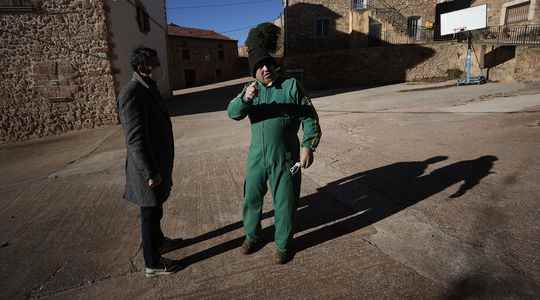By awarding the Golden Bear 2022 to the film Alcarras, the Berlin International Festival shone the spotlight on a painful subject in Spain, that of the disarray of small farmers. Alcarras is a village in Catalonia located equidistant from Zaragoza and Barcelona, where the director Carla Simon, 35, grew up, herself the daughter of peach producers.
His feature film tells the story of farmers driven out by their owners who want to replace orchards with solar panels. In the background, three generations see their traditional world collapsing in the face of the modernization of large farms. The Catalan filmmaker says she wanted to pay tribute “to the people who fill our plates”.
Alcarras, which will be released in theaters on April 29, confirms the return of the theme of rurality to public debate. Spain has the sad privilege of being the champion of rural desertification. These were victims of strong emigration under the Franco regime in the 1950s and 1960s; then the phenomenon of rural exodus since the fall of the dictatorship in 1975.
While its population has since increased by 38% to reach 47.3 million inhabitants, the country has seen its rural areas depopulated in proportions unparalleled elsewhere in Europe, confirmed in December the National Institute statistics. In places, the drop in the number of inhabitants exceeded 30%, with certain regions becoming as desert as Lapland. The most affected are Asturias and Castile and Leon, where more than 85% of municipalities lost citizens between 1996 and 2020.
Demonstrations, then a real political party
The problem could have continued to be ignored by the ruling class if the campaigns had not decided to go into politics to make themselves heard, raising the concern of the Spanish Socialist Workers’ Party (PSOE), at the helm in Madrid, like the People’s Party (PP), main opposition party (centre right). First stage, in March 2019, the rural world parades in the capital to castigate the medical and educational deserts, to demand road infrastructure and high-speed Internet access.
A new level is crossed in September 2021: some 160 collective citizens and associations come together in a new political party called España Vaciada (emptied Spain), with the aim of being represented in the Chamber of Deputies in the legislative elections of 2023. Credited by the polls of 15 seats at the national level, this formation is already shaking up the political game. In the early regional election of February 13 in Castile and Leon, she won 7 seats out of 81.
For some optimistic experts, however, desertified countryside has a major advantage: it could contribute to the fight against global warming. These abandoned territories “will become the new horizon of the carbon-free economy and renewable energies”, maintains Lorién Jiménez Martinez, professor of sociology at the University of Zaragoza. They will soon prove to be “as strategic as Saudi Arabia or Texas were in the 20th century”, when oil was king. Not sure that this is enough to reassure the peach growers of Alcarras.
